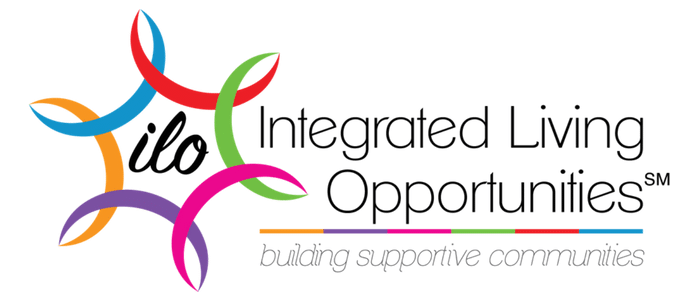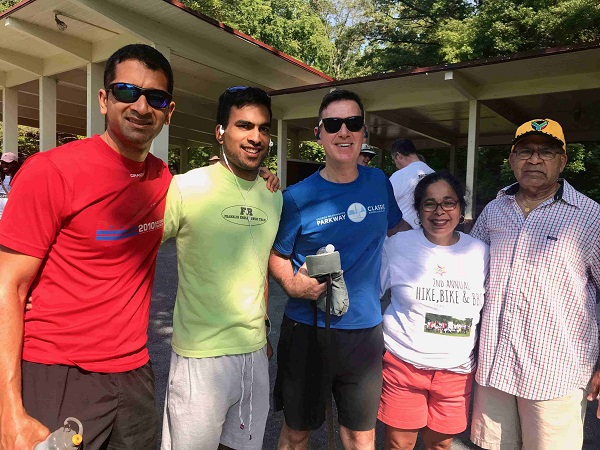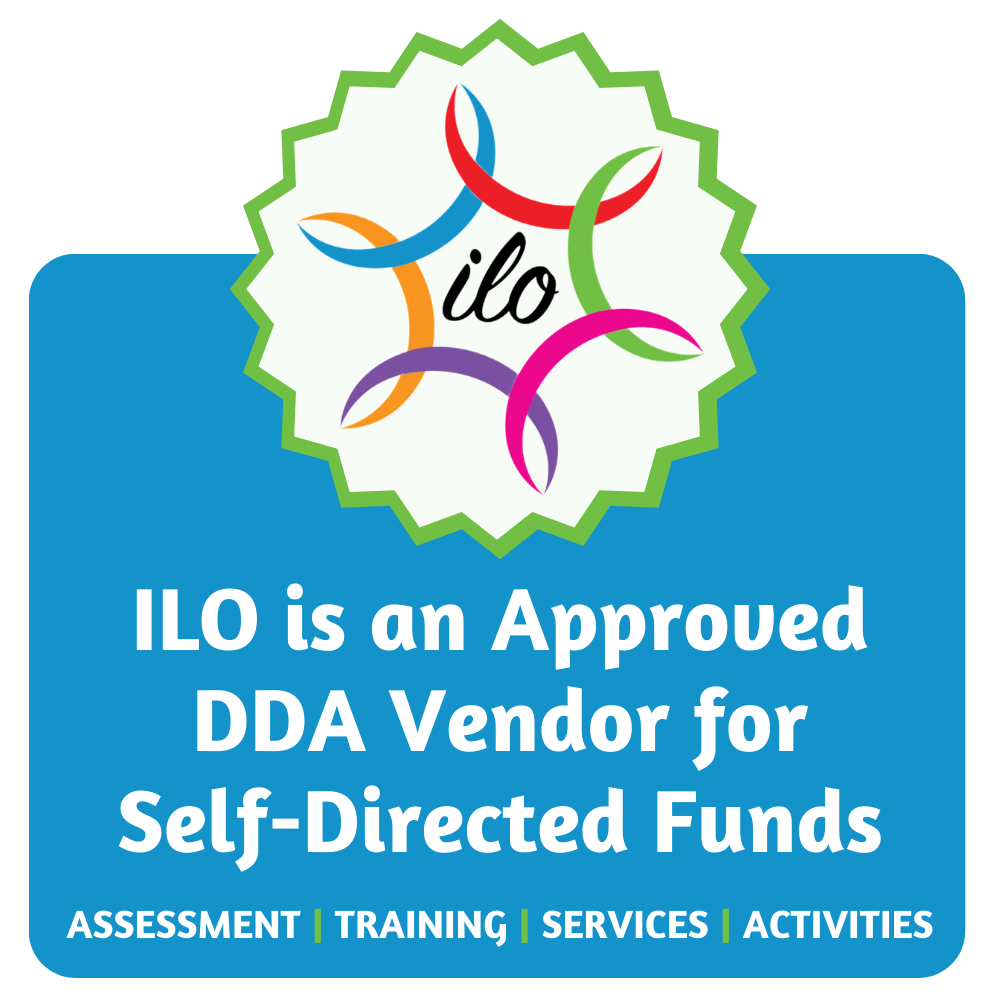Services for ILO’s Participating Families
For Participating Families, ILO offers five areas of services:
1. ILO Training
Integrated Living Opportunities (ILO) requires all Participating Families to participate in a two-day workshop.
Through the workshop, families gain an understanding of the process of building inclusive communities and preparing their self-advocate to move into their own residence, and build an independent life. The training teaches new families how ILO facilitates this process.
Topics addressed during the workshop includes:
- how ILO works and the services it provides,
- how ILO and families build personal networks of support for a self-advocate,
- what alternate housing options exist for self-advocates,
- how to develop community partnerships, and
- why ILO communities are successful through the assistance of the Community Life Coordinator, Community Builder and Life Coaches.
There is a fee charged for the training, which covers ILO’s facilitator, speakers and staff, as well as transportation, food, and logistical support.
2. Assessment: The Full Life Process™ Skills Inventory
ILO uses the Full Life Process™ Skills Inventory, which has been developed over the last 15 years by the Center for Independent Futures in Evanston, IL.
Conducted by an assessor trained by ILO, the inventory consists of three components:
- Interviews with the self-advocate, individually and with their family,
- Field-based observations of the current status of independent living skills the self-advocate has, and
- An online inventory, completed by the family, that develops a profile of the self-advocate’s capabilities.
Using data from all three components, the assessor then develops a report which identifies capabilities that the self-advocate needs to develop and maintain in order to live a full and independent life.
The Skills Inventory is available to all ILO self-advocates and their families, whether they are Participating Families or Community Group members.
ILO provides an option to maintain an online version of the Skills Inventory that can be updated on a regular basis to provide a record of progress and a framework for ongoing skill-building.
There is a fixed fee charged for the Skills Inventory, and a recurring fee for access to the online assessment.
To learn more about the Skills Inventory, click here.
3. Supports and Staffing: ILO Director of Programming and Life Coaches
ILO’s Participating Families are able to use ILO’s supports and staffing services.
Once the training and assessment are completed, ILO assists families in acquiring supports to help self-advocates transition to and maintain independent living. These supports include:
- Readiness coaching to prepare families and self-advocates for moving out of the family residence and expanding active engagement in the community.
- Identification of appropriate living situations, including living on one’s own, having roommates, and renting or purchasing, as well as the need for support staff. ILO also works with families to determine living options that reflect the wishes and the needs of the self-advocate. ILO helps families with understanding the maze of affordable housing in Maryland and DC.
- Identification of services to support the development and maintenance of daily living skills, access to employment specialists, and social activities.
Given the wide geographic area that ILO covers, ILO’s Participating Families connect to ILO through distributed community pods, which are smaller groups of families physically located near one another. There are currently several community pods in Gaithersburg, Rockville, Germantown and Bethesda, MD, and Washington, DC. To learn more about the community pods, click here.
ILO’s Director of Programing oversees the staff and services for the self-advocates. For each pod, ILO provides Community Builders and Life Coaches to help facilitate the overall development process and monitor the quality of life for of each of the self-advocates. They mentor self-advocates to help create peer-to-peer relationships, integrate into their communities, develop and improve independent living skills, and build and maintain personal support networks.
ILO’s Director of Programming works closely with family and staff to:
- Coordinate and facilitate the overall development process for each self-advocate.
- Oversee goal-setting for self-advocates with input from individuals and families using the Full Life Process Skills Inventory.
- Monitor the quality of life of each self-advocate.
- Supervise staff and helps them identify and create tools needed for the self-advocates.
- Handle problem situations and coordinates implementation of support systems.
ILO’s Community Builders are the glue that binds the self-advocates together and coordinates group activities. They work with each self-advocate to:
- Begin operating within a “community” of relationships with the other young adults in their community pod, whether the self-advocate is still living at home or already out on their own.
- Meet regularly with all the self-advocates to develop a support group among their peers. This regular contact allows the community builder to be aware of communication and living issues and then can help the self-advocates problem-solve.
- Work one-on-one, with self-advocates, as needed.
- Act as an emergency presence and serves as a resource and advocate for the individuals in the pod.
A Community Builder may live in or near self-advocates’ housing, whether that is an apartment building, townhouse, free-standing house, or with those still in their family home.
ILO’s Life Coaches provide support and training to enable the self-advocate to gain further independent living skills with the use of the Full Life Process™ Skills Inventory.
ILO provides guidance in finding affordable services that meet the specific needs of self-advocates, but we do not provide or fund staffing for the self-advocate. ILO can act as both an initial and ongoing liaison between the self-advocate, support services, and the family if the self-advocate and family desire this assistance.
The services of ILO’s Community Builders and Life Coaches are fee-based.
4. Advocacy
ILO can work with the self-advocate and their families as the initial and ongoing liaison between public and private agencies and funding programs. Based on our knowledge of the options available and the needs of the self-advocate gleaned from the skills assessment, ILO can provide guidance that meet the specific needs of the self-advocate.
Advocacy services are provided for fees based on services provided.
5. Long Term Planning and Facilitation
ILO can facilitate the development of an ongoing, interactive plan to ensure that the self-advocate can maintain a financially secure and independent life, even after the family decides to step aside, or are no longer around. ILO staff, as the “beneficiary advocate”, will work with the parents of the self-advocate to mirror many of the roles that the parent provides for the self-advocate.
Working with ILO staff, the family and the self-advocates, the plan should be developed early and be reviewed and adjusted over time. A critical aspect of the plan will be the funding for these services, which can come from sources such as the self-advocates special needs trust, an ABLE account or other funding sources.
Long term planning and facilitation services are provided for fees based on services provided.
It's True - ALL of ILO's Fees Can be Paid Using Self-Directed Funds
Transition to Independent Living the ILO Way!
Your loved one can join ILO and be part of a Community POD where they have social connections through vibrant activities and support from ILO staff in building peer-to-peer relationships and helping them grow their independent living skills.
All ILO Fees can be paid with one’s self-directed budget. Learn more HERE.


